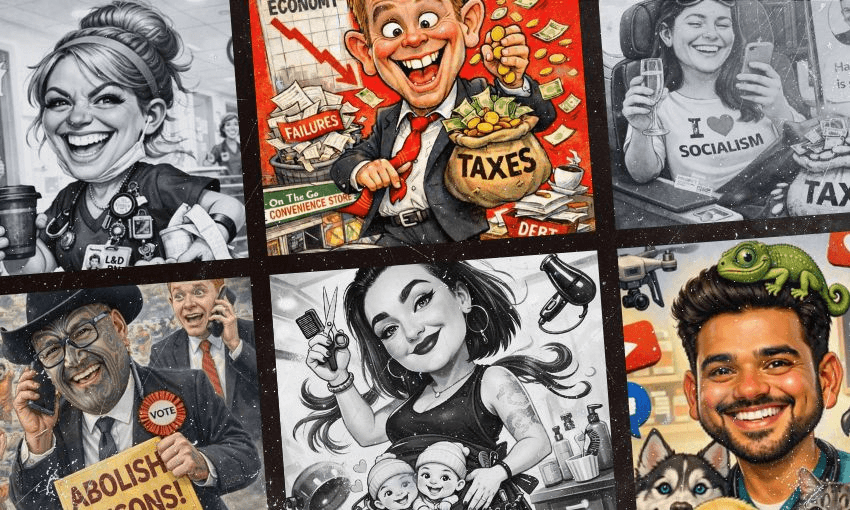Community activists and charity groups staged a hikoi in Tauranga today, outraged at a bylaw prohibiting beggars and rough sleepers in the CBD. But the hikoi is also about restoring mana and hope, explains Kai Aroha founder Tania Lewis-Rickard
Two years ago I started our charity Kai Aroha because of the obvious growth of poverty and the increasing numbers of poor out on the street, including people in my whanau. I just had to do something. Right now my ten volunteers and I provide dinner for anywhere from 40 to 70 people, one night a week. We’ve been asked to do more but what little we have is only enough to consistently sustain one night. Some of our people are sleeping on the street, some of them are living in cars, and some of them are elderly with nowhere else to go, but the one unifying factor they share is how much even just one meal can do for their outlook in terms of a show of support. We know that it gives them hope.
This hikoi is a direct result of the bylaw the council has put in place to ban begging and rough sleeping in Tauranga, which are issues that directly affect the people who use services like Kai Aroha. I understand concerns business owners have around begging, but of more concern to us is the prohibition of rough sleeping.
This bylaw dehumanises the vulnerable. The community and I are calling on council to collaborate and to discuss with us practical solutions to help get these people off the street because you cannot take shelter from people without providing an alternative and replacing it with something. Our people want to keep warm, they want to keep safe, and they need shelter. They also need to be under lights. Pushing them out into the darkness is inhumane.
This hikoi supports our city’s most vulnerable and homeless individuals, both men and women. They need us to find an alternative solution to prove that shelter to keep them warm. This demonstration is a show of our support and our identification with them as people, and of our collective humanity. It’s a display of mana and it is also a symbol of restoring lost hope. These communities know about the by-law, and they’re affected by that knowledge. It makes them feel hopeless. This is not about us and them, it’s about us. We must close the divide and stop seeing them as other.
Take blankets for example. We are supplying endless blankets to our communities and many people ask us why. But these people are sleeping on the ground, they’re having to hide their bedding and if it’s not picked up by an angry retailer or a policeman then it’s stolen by somebody else. It gets dirty, it gets damaged and it gets ruined by the weather. If their bedding is wet they’re forced to dump it because they don’t have the facilities to sort it out. And these aren’t only localised problems – it’s even worse in places like Rotorua. The situation there is dire, there are so many people on the street and in tents and in their cars.
Councillors know who we are, and they know of the mutual respect between ourselves, other charity groups and the people on the street. They know this is a peaceable hikoi, that it’s not a platform from which to abuse or slander any particular individuals, but that it’s about moving forward on real solutions. We are still angry, but we’re going to use that anger in a positive way and offer solutions that are backed up by action. We need them to listen and that’s the only way it will happen.
We want a hui that’s about coming together.
Because poverty isn’t a choice. Very few people choose their circumstances. Poverty is not a choice or an unhappy accident, it’s complex and multifaceted. But what we do know is that something that really makes a different is hope. So to the councillors who believe we’re getting “too worked up”, we would say if you’re not interested in offering solutions, get out of the way of the people that do.
As told to Don Rowe



